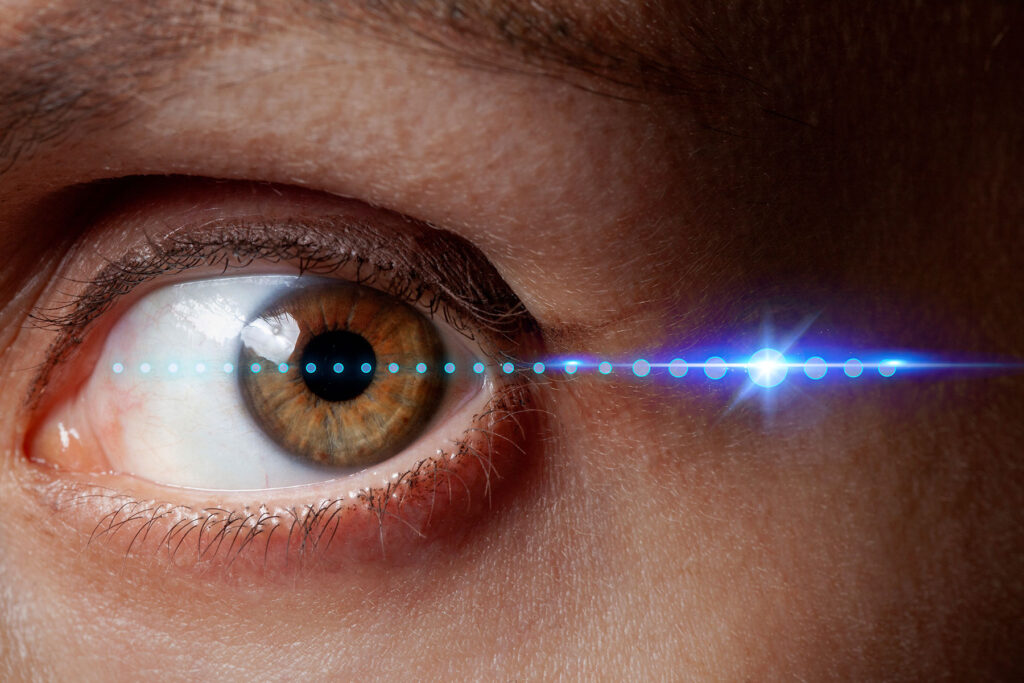Eye movement desensitization and reprocessing (EMDR) therapy is a powerful tool for trauma survivors to manage their symptoms and heal from their experiences. What is EMDR therapy? You may be wondering what EMDR therapy is like and how it can help you or a loved one.
To learn about Vertava Health’s compassionate EMDR therapy program, contact us at 844.470.0410 today. We are here to help.
What Is EMDR Therapy?
What is EMDR therapy? EMDR helps your brain process and release traumatic memories through eye movements. This therapy is based on the idea that your brain cannot effectively process painful events or emotions, which can result in psychological distress. Through EMDR, you can reprocess these memories and reduce the power of certain triggers associated with them.
Eye movement desensitization and reprocessing (EMDR) therapy was developed by Dr. Francine Shapiro in 1987 to treat post-traumatic stress disorder (PTSD). This therapy uses eye movements (or sometimes rhythmic tapping) to change how memory is stored in the brain, allowing you to process it.
What Is EMDR Therapy Used For?
EMDR helps your brain process and release traumatic memories through eye movements. People experience trauma in multiple ways. Some have intense dreams that interfere with their sleep, flashbacks of their trauma, and anxiety. While traditional talk therapy and medications are the main treatments for post-traumatic stress, EMDR is a complementary modality to talk therapy and medications.
EMDR is an evidence-based treatment for PTSD. In the United States, the Department of Veterans Affairs and Department of Defense list EMDR as a “best practice” in treating veterans experiencing PTSD. EMDR is recognized as an effective treatment by several national and international organizations, including the World Health Organization (WHO) and the American Psychiatric Association (APA).
What Is EMDR Therapy Like?
While the human brain has an amazing capability to process stressful information, it sometimes stores information that you do not process. This means that images, feelings, thoughts, and sensory information (smells, sounds) can be present as if the event just “happened,” no matter how long ago it was. When memories are stored in this raw, unprocessed form, problems, symptoms, and mental health disorders can result. While everyone has both positive and negative vivid emotional memories, the memories associated with an event that results in PTSD are laden with fear, pain, and, sometimes, anger.
During EMDR, you will likely experience:
- A sense of well-being and relaxation
- A lessening of the intensity of emotions associated with trauma memories
- Reduction in physical symptoms related to traumatic events
- Improved functioning at work, home, or school
- Increased capacity for self-care and better decision-making
- An increased understanding of oneself and one’s life story
EMDR is to help you work through painful memories with your body’s natural functions. It is based on the theory that traumatic events are not properly processed in the brain when they happen. This is why they continue to affect us with nightmares, flashbacks, and feelings of the trauma happening again long after the actual trauma is over. When the sights, sounds, and smells have a connection or similarity to a trauma event, it will “trigger” those improperly stored memories.
What Is the Goal of EMDR?
The goal of EMDR therapy is to change the way that traumatic memories are stored in your brain. During an EMDR therapy session, your therapist will ask you to briefly focus on a trauma memory. Then, they will instruct you to perform side-to-side eye movements while thinking of the memory. This engages both sides of your brain and is termed bilateral stimulation.
How Long Does EMDR Last?
With EMDR, you will usually have one or two sessions per week, about 6 to 12 sessions in total. You may require more or fewer sessions depending on your individual response to therapy. EMDR therapy includes developing a treatment plan and treatment goals, including what symptoms you experience and what you would like to achieve from therapy.
EMDR therapists go through training that includes skills for client safety and stabilization. There is a standard recognized 8-phase EMDR protocol, supervision, and a number of clinical hours that are required to be an effective EMDR therapist. All EMDR therapists are licensed clinicians. There are nationally recognized certifications for EMDR therapists.
Call Vertava Health Now
Everyone deserves to heal from their trauma. EMDR can help you or a loved one. Contact us today at 844.470.0410 to learn how EMDR can enhance quality of life.


